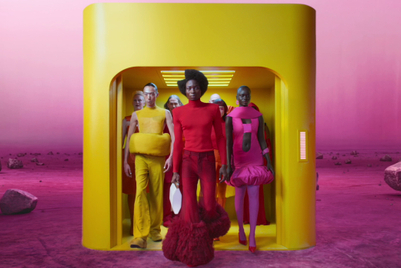
Twitter Files: COVID Edition was released on Monday, two weeks after Elon Musk promised an installment of Twitter Files dedicated to addressing the alleged suppression of COVID-19 critics on the social media platform.
The 41-post thread details how the social media platform allegedly “rigged the COVID debate,” according to David Zweig, an investigative reporter. This latest version of Twitter Files was also compiled into an article in The Free Press.
Zweig said in his introductory tweet that Twitter affected the public debate over COVID-19 by “censoring info that was true but inconvenient to U.S. govt. policy,” by “discrediting doctors and other experts who disagreed,” and by “suppressing ordinary users, including some sharing the CDC’s *own data.*”
Musk has long been a skeptic of the COVID-19 pandemic and was particularly critical of the public health measures enacted to slow the spread of the virus. He tweeted that a follow-up piece is planned for next week, featuring “leading doctors & researchers from Harvard, Stanford & other institutions.” Musk added that many of these individuals were “actively suppressed on Twitter,” the company he purchased in October for $44 billion.
In the thread, Zweig asserted that internal company documents show the U.S. government pressured Twitter to elevate certain content while suppressing other content about COVID-19.
Zweig included a screenshot of a document that suggested in one of its first meetings with Twitter executives, members of the Biden administration expressed a desire to target and deplatform prominent anti-vaxxers on the site.
Specifically, the thread discusses how Twitter moderated content from former New York Times reporter Alex Berenson, a vocal critic of COVID-19 public health measures and the vaccine rollout who The Atlantic declared “The Pandemic’s Wrongest Man” in April 2021.
He added that a review of internal communications allegedly showed that Twitter employees debated “moderation cases in great detail” and did not fully acquiesce to government requests to Biden administration requests to deplatform anti-vaccine views on the site.
Still, Zweig wrote that Twitter suppressed views that “conflicted with the official positions of the White House” and resulted in the overshadowing of “legitimate findings and questions that would have expanded the public debate.”
Twitter, like many other social media companies, faced numerous challenges to moderate content and combat misinformation related to COVID-19 during the pandemic. While some platforms like YouTube have sought to take a more proactive approach to misinformation, Twitter has pivoted.
Late last month, Twitter announced that its COVID misinformation policy, which removed more than 11,000 accounts since 2020, is no longer in effect.
The reporting on Twitter’s communications with the White House comes after previous Twitter Files focused on the company’s close working relationship with the Federal Bureau of Investigation.
Additionally, Zweig wrote that Twitter accounts of critics of COVID-19 public health measures or those offering dissident views were labeled as misleading or taken down for differing from established views or those of the Centers for Disease Control and Prevention.
Zweig stated that Twitter’s internal system for flagging problematic content, largely the duty of AI-powered bots that were reviewed by human moderators, resulted in contrarian views being labeled as misleading.
“Twitter made a decision, via the political leanings of senior staff, and govt pressure, that the public health authorities’ approach to the pandemic – prioritizing mitigation over other concerns – was “The Science,” Zweig wrote.
“Information that challenged that view, such as showing harms of vaccines, or that could be perceived as downplaying the risks of COVID, especially to children, was subject to moderation, and even suppression. No matter whether such views were correct or adopted abroad,” he added.
Zweig concluded his piece by questioning what the pandemic may have looked like if there had been a “more open debate on Twitter” about the origins of COVID-19, the lockdowns and “the true risks of COVID in kids.”
The latest Twitter Files installment enjoyed widespread coverage among conservative news outlets, but received criticism from healthcare professionals
Katrine L. Wallace, PhD, an epidemiologist and adjunct assistant professor at the University of Illinois Chicago criticized the Zweig piece in a lengthy thread. She argued that Musk’s decision to “cherry pick old files to somehow say that moderating disinformation about a health emergency is a bad thing is the opposite of reality.”
Similarly, Benjamin L. Mazer, a board-certified anatomic and clinical pathologist who also serves as an assistant professor of pathology at Johns Hopkins University, voiced his concerns with the implications of Zweig’s thread.
“I am more than comfortable having hard debates about about [sic] the role of NPIs and the importance of the economy in people’s health. But having a real debate means acknowledging one side of the equation: millions of COVID deaths. The GBDers thought this wouldn’t happen. It did,” he tweeted.
This story first appeared on MM+M.



.jpg&h=334&w=500&q=100&v=20170226&c=1)














.jpg&h=268&w=401&q=100&v=20170226&c=1)
.jpg&h=268&w=401&q=100&v=20170226&c=1)
